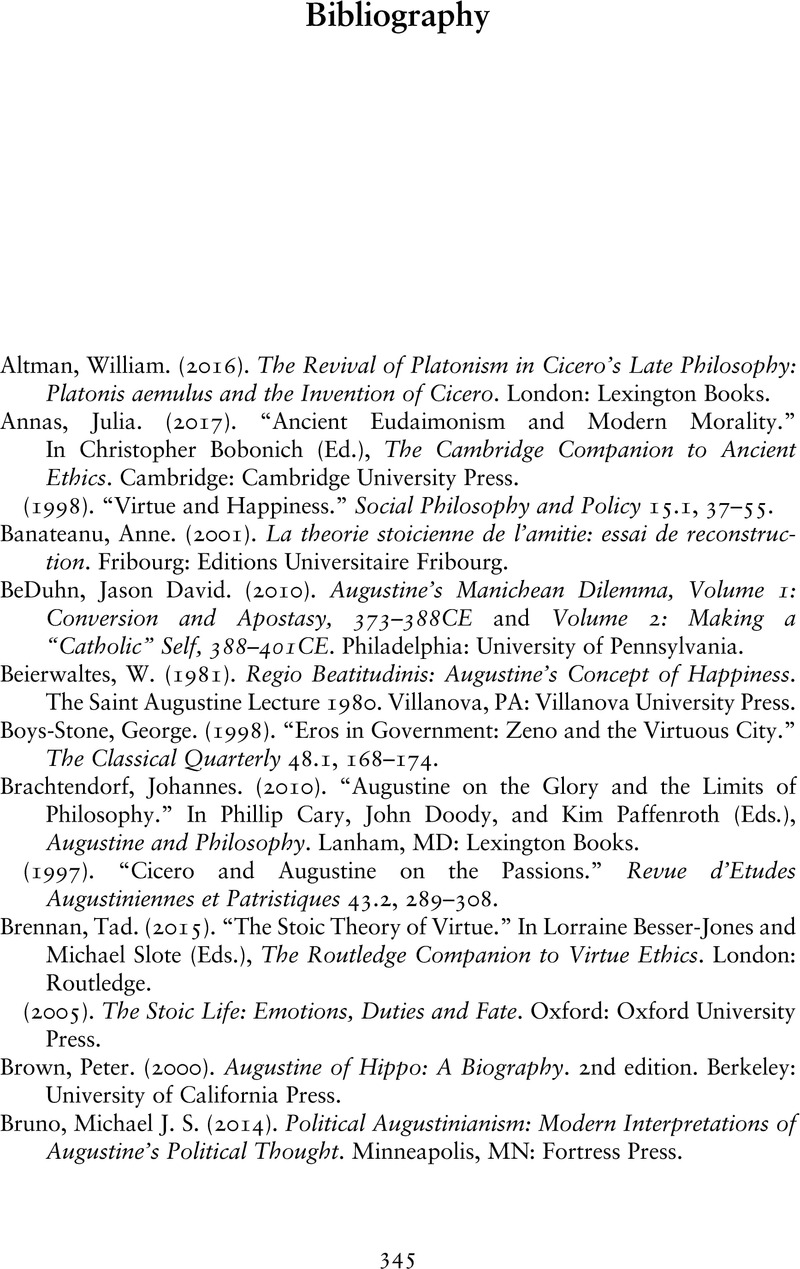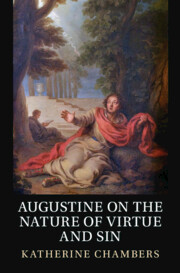Book contents
- Augustine on the Nature of Virtue and Sin
- Augustine on the Nature of Virtue and Sin
- Copyright page
- Contents
- Acknowledgements
- A Note on Translations and Abbreviations
- 1 Introducing the Issues
- 2 Political Virtues?
- 3 Political Vices?
- 4 Augustine’s Definitions of Virtue
- 5 Augustine’s Place within the Eudaimonist Tradition
- 6 The Life in Accordance with Nature
- 7 Self-Love and Neighbour-Love
- 8 The Nature of Sin
- 9 Weakness, Ignorance, and Pride
- Bibliography
- Index
- References
Bibliography
Published online by Cambridge University Press: 10 January 2024
- Augustine on the Nature of Virtue and Sin
- Augustine on the Nature of Virtue and Sin
- Copyright page
- Contents
- Acknowledgements
- A Note on Translations and Abbreviations
- 1 Introducing the Issues
- 2 Political Virtues?
- 3 Political Vices?
- 4 Augustine’s Definitions of Virtue
- 5 Augustine’s Place within the Eudaimonist Tradition
- 6 The Life in Accordance with Nature
- 7 Self-Love and Neighbour-Love
- 8 The Nature of Sin
- 9 Weakness, Ignorance, and Pride
- Bibliography
- Index
- References
Summary

- Type
- Chapter
- Information
- Augustine on the Nature of Virtue and Sin , pp. 345 - 352Publisher: Cambridge University PressPrint publication year: 2023

